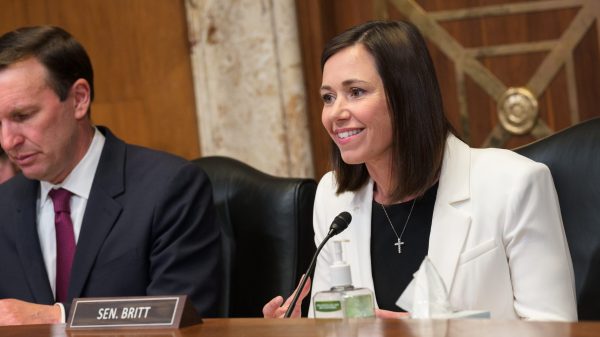By Brandon Moseley
Alabama Political Reporter
On Tuesday, September 30, the Center for Education Reform (CER) released its Fifth edition of its Parent Power Index (PPI). Alabama was ranked number 47 by the group that advocates for parental choices in education and other education reforms.
According to CER, just six states earned rankings above 80 percent when it comes to giving parents fundamental power over their child’s education in this edition of their PPI release.
CER writes that their Parent Power Index is a web-based report card that evaluates and ranks states based on qualitative and proven state education policies. The higher a state’s grade, the more parents are afforded access and information about learning options that can deliver successful educational outcomes for their children.
The President of the Center for Education Reform, Kara Kerwin said, “While it’s true some states have made progress, it’s not nearly enough to meet demand. Simply put, we need more learning options available to more families, and we need them fast…Out of the over 54 million K-12 students nationwide, only an estimated 6.5 million students are taking advantage of charter schools, school choice programs such as vouchers or tax credits, and digital or blended learning models. With the United States’ school-aged population expected to grow at unprecedented rates in the next 15 years, how will our school system be able to meet demand when we already have wait lists for charter schools and oversubscribed scholarship programs?”
The median PPI score was 67.4 percent (Delaware). Alabama received a 57 score. According to CER’s statement PPI scores are based upon five components: how states have implemented policies surrounding charter schools, school choice, teacher quality, transparency, and online learning. Those are the five main components that comprise state PPI scores. Mississippi is now ranked 20 and was credited as the state that made the most progress since the last score card because of reforms implemented by the Mississippi state legislature.
Of Alabama the group wrote, “The Heart of Dixie finally adopted a modest choice program, but there are no charters, no trigger, and barely any online learning options. The only other thing this state has going for it is that its teacher quality index isn’t a complete failure. Parents also have access to a decent school report card to better understand their schools but the data is old making it difficult to make smart decisions, and school board elections are held in October, a busy time for parents to get engaged.”
Talking about the Alabama Accountability Act CER wrote, “Alabama recently adopted a modest tax credit scholarship program that is too new to really see how it will result in greater opportunities for students. Despite a circuit court ruling against the program, the 2,900 students who received a scholarship in 2014 were allowed to continue in the program while it waits on its appeal to the State Supreme Court. It is considered the weakest tax credit program in the nation because participation is limited in scope. The state does not permit choice among traditional public schools…Despite continuous efforts by legislators, Alabama is one of the eight remaining states with no charter school law.”
The group wrote, “Alabama is limited in its digital learning offerings, although students are currently required to successfully complete an online learning experience to earn a high school diploma. However, the state’s funding mechanism does not support universal access to online learning options…Teachers are not evaluated using objective evidence of student learning, and tenure decisions are not based on effectiveness. Ineffective teachers who receive unsatisfactory evaluations will not be eligible for dismissal, as classroom performance is not considered grounds for dismissal, nor is it a determining factor in layoffs. Teacher pay is controlled by a typical state salary schedule.”
Finally the CER report said, “The overall state report card is very accessible, but school specific information is practically nonexistent, with no performance data readily available after 2009. There is also no information on tax credit scholarship programs available that doesn’t require a separate visit to the state department of revenue. Major variances in city and county school board elections — with some appointed and others elected, some elections in November and others in August — make it difficult for parents to know when or how to hold elected or appointed school officials accountable.”
Charter schools remain very controversial in Alabama and there is considerable opposition from both school boards and teacher groups who debate the effectiveness of the whole charter schools movement.
Many people in Alabama oppose charter schools because they mean moving students and money away from traditional public school systems to the new charter schools.






















































